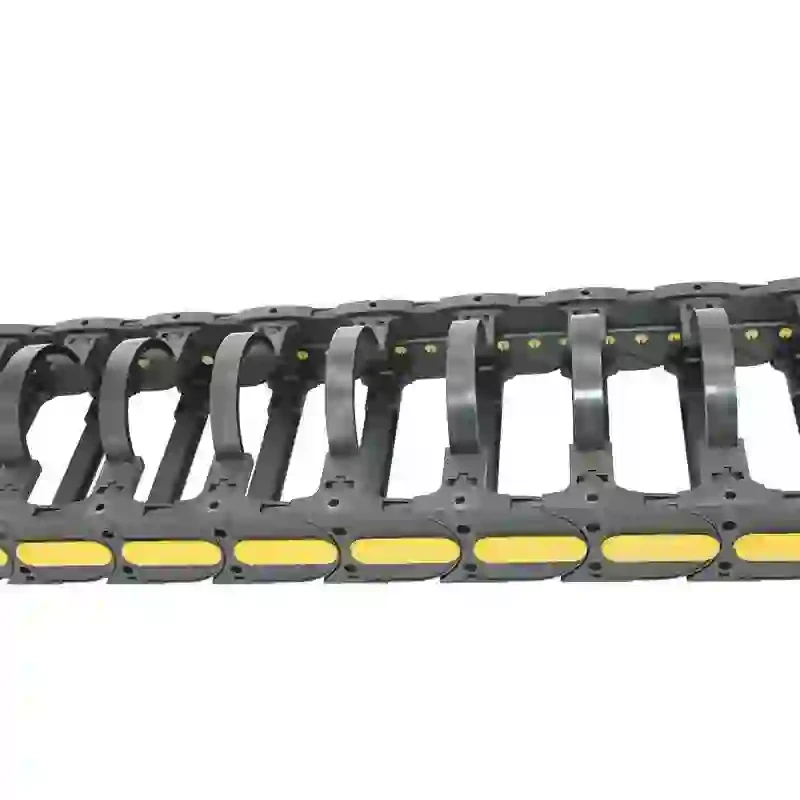Choosing the Right Electrical Cable Carrier for Your Project Needs and Efficiency
Understanding Electrical Cable Carriers Importance and Applications
In the industrial world, the efficient management of electrical cables is crucial for ensuring smooth operations, safety, and longevity of machinery. One of the essential components for achieving this is the electrical cable carrier, also known as cable track or cable chain. These structures play a significant role in the organization and protection of cables, particularly in dynamic environments where movement and flexibility are vital.
What is an Electrical Cable Carrier?
An electrical cable carrier is a mechanical structure designed to manage and protect moving cables and hoses in industries where machinery requires extensive movement. These carriers come in various designs, including open and closed structures, providing flexibility to accommodate different applications. They are typically made of durable materials such as plastic, steel, or aluminum, ensuring they withstand the rigors of industrial use.
Cable carriers function by guiding and containing cables as machinery moves, preventing tangles, wear, and exposure to harsh environments. They ensure that cables remain organized and easily accessible, which is particularly critical in setups involving robotics, cranes, and other automated systems where motion is frequent.
Benefits of Using Electrical Cable Carriers
1. Organization and Efficiency One of the primary benefits of cable carriers is their ability to keep cables organized. This organization enhances operational efficiency, as technicians can easily identify and access specific cables for maintenance or repair. A clutter-free workspace minimizes the risk of accidents and improves workflow.
2. Protection Against Damage Cables exposed to the elements or mechanical wear can degrade quickly. Cable carriers provide a protective environment, shielding cables from abrasion, moisture, and chemicals. This protection extends the life of the cables, saving costs on replacements and minimizing downtime.
3. Flexibility and Mobility In applications that require movement, such as robotic arms or conveyor systems, cable carriers enable smooth operation by allowing cables to move freely without the risk of entanglement or restriction. This flexibility is essential for maintaining consistent performance in high-speed environments.
4. Safety Assurance By organizing and enclosing cables, electrical cable carriers reduce the risk of tripping hazards and accidental disconnections. They provide a safer work environment for operators and maintenance personnel, ultimately promoting workplace safety.
electrical cable carrier

5. Customizability Cable carriers can be customized to fit specific cable sizes and types, accommodating various industrial requirements. The availability of different sizes, shapes, and materials allows industries to select carriers tailored to their operational needs.
Applications of Electrical Cable Carriers
Electrical cable carriers find applications in numerous industries, each benefiting from their unique advantages. Common sectors include
- Manufacturing In manufacturing plants, cable carriers are often used in automated production lines, ensuring that power and communication cables are managed securely as machinery operates.
- Robotics In robotic applications, the dynamic movement of robotic arms necessitates the use of cable carriers to prevent cable kinks and damage during complex operations.
- Construction Construction equipment such as cranes often utilize cable carriers to manage electric and hydraulic lines, preventing wear and ensuring reliable performance.
- Transportation In rail systems and conveyor belts, cable carriers facilitate the movement of electrical and control cables, maintaining functionality over long distances and through rigorous movements.
Conclusion
As industries increasingly rely on complex machinery and automated systems, the importance of effective cable management cannot be overstated. Electrical cable carriers are vital components that contribute to operational efficiency, safety, and the longevity of electrical systems. By understanding their benefits and applications, industries can harness the full potential of these essential tools, ensuring that their operations remain seamless and productive in an ever-evolving technological landscape. Choosing the right cable carrier solution ultimately empowers businesses to achieve greater reliability and performance in their operations.








